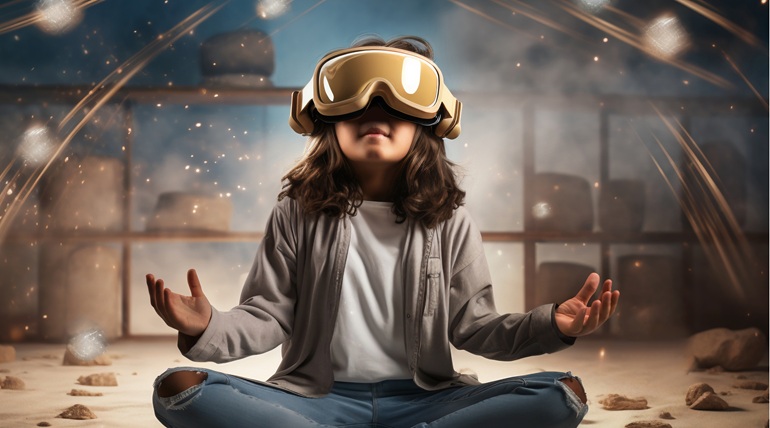5332 Hillandale Rd, Davenport IA


5332 Hillandale Rd, Davenport IA

Every once in a while, an outwardly mundane but internally profound question occurs to everyone who is watching the success of virtual education and training unfold: why do we remember what happens in the simulation? And, after the training is over, why do we remember and understand what happens in the simulation better than what we experience outside it, as research demonstrates we do?
Neurologists and brain scientists will immediately raise their hands, and their points should be acknowledged for carrying the hefty authority of empirical science.
The research here largely focuses on input and output. It tells us fairly definitively that the input XR technologies deliver to our sensory organs augment the functioning of the parts of the brain that dictate its capacity to remember, recall and understand this input. This inevitably causes it to output higher quality performance in tasks that test our memory and our ability to put learned behavior to work on the world around us. The talented scientists in this field have made no secrets about this–they have done us the favor of publishing their research in many a prestigious journal: Enhanced hippocampal theta rhythmicity and emergence of eta oscillation in virtual reality - Nature Neuroscience (be prepared to set aside a bit of time to read it, by the way–their journal publications do not water anything down, and density of these texts is a brain exercise in and of itself)
But I would argue there is more to it than neurological input and output. When you put on a headset, when your perception of yourself becomes immersed in another world, there is actually more than an empirical dimension to what’s going on–there is a metaphysical aspect to it that in some ways runs deeper.
You see, in the simulated world, you notice that everything has changed–the objects in your environment, the movement of your body, what happens when you point your hand at whatever lies in front of you.
Yet, if the VR environment is well-constructed, no matter how completely transformative it is, you will notice that there is one thing that never changes.
It is very subtle–so basic that it’s easy to miss. It’s even hard to describe. But in a truly all-encompassing VR experience, as you notice the incidental and changeable nature of every object around you, you will also notice that some thinking thing–a fundamental, perceiving identity that is commensurate with your sense of self–has, in contrast to everything else, revealed itself to be immutably persistent.
Philosophers like to call this thing ‘consciousness’--but, you might more accurately label it ‘you’. Ironically, we rarely perceive it, even though it is always with us.
But XR, if done well, allows us to perceive it, and in doing so sharpens everything that extends from it–the most of important of which are memory and understanding. The things that, if you recall–pun entirely intended–when improved, also improve our ability to learn new tasks, and accomplish ones we’ve already learned with greater speed and effectiveness.
That takes us out of the realm of empiricism and into metaphysics, of course. Which is another way of saying that XR experiences have a metaphysical dimension to them that also boosts any learning we do inside them–something more fundamental, and different in character, than the empirical dimension.
Or at least that is one school of thought. Many theorists of neuroscience and its relation to perception may, at this point, break out the pitchforks and rush in my direction. And you, if you are inclined towards a purely materialist conception of mental activity, may be tempted to scoff, or at least say “who in the world would ever support such an argument?”
To this I would respectfully cite the great forefather of virtual reality (and one of my favorite writers), Jaron Lanier, who has made the same argument many times (one example: A Vintage Virtual Reality Interview), in debates with materialist philosophers as widely known and respected as Daniel Dennet. When it comes to XR, you’d be hard-pressed to find a greater authority on the matter.
Fortunately, though, you can test the proposition yourself, in a thoroughly enjoyable way, by experiencing the sights, sounds and experiences of the emerging XR revolution. Indeed, CoAxiom Services might just help you in the endeavor, if you care to sample its wares–or, even better, get in touch to talk about how we can make you your very own memory-improving, cognition-boosting experience. Either way, you’ll be you–when you’re dropped into the immersive world, and when you come out.